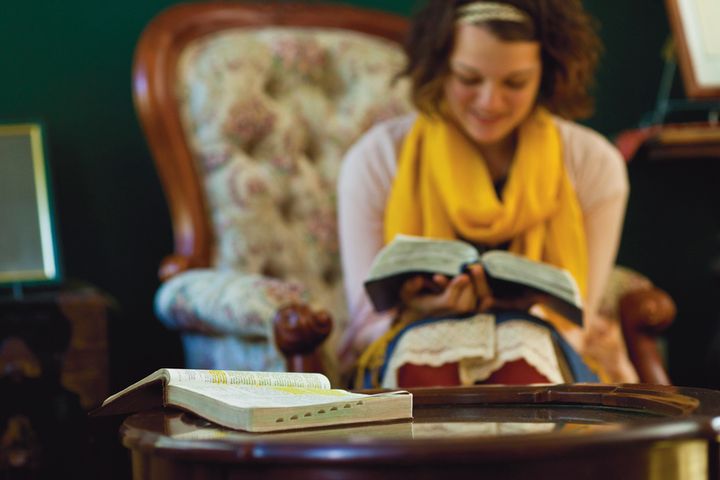Strengthening Families: Internet and Social Media

My purpose tonight is to invite you and me to be more intentional about the way that we use technology, the internet, smartphones and other devices in our lives and homes. I do not want to suggest in any way that the use of these things is bad, or that you should necessarily implement any of the same changes that I or others have made. And I certainly don’t want anyone to think that I am in any way perfect at this. But I do want to invite you and me to consider if and how we can make changes that will improve our lives and the lives of those closest to us.
In 2009 Elder Bednar gave a talk to Young Adults entitled “Things as They Really Are”. While I had long since forgotten the specific details of the content of this address, to me, and to us as a young married couple at the time, this was a landmark talk about how technology should, and should not, be used in our homes and lives. He says
I raise an apostolic voice of warning about the potentially stifling, suffocating, suppressing, and constraining impact of some kinds of cyberspace interactions and experiences upon our souls. …
Please be careful of becoming so immersed and engrossed in pixels, texting, earbuds, twittering, online social networking, and potentially addictive uses of media and the Internet that you fail to recognize the importance of your physical body and miss the richness of person-to-person communication. Beware of digital displays and data in many forms of computer-mediated interaction that can displace the full range of physical capacity and experience.
He cites many examples of the great value that technology can add to our lives and mortal experiences, which has certainly only increased over the last few years with isolation and physical distancing requirements. But he also cites examples of the spiritual, emotional and physical harm that can come upon us when we do not see things “as they really are”, but instead view the world through a computer monitor or smart phone screen. And that has certainly increased dramatically in the 13 years since the talk was given.

When the mobile, augmented reality game Pokemon Go was released, I signed up and began playing within the first few days. I had fun exploring real life places and catching virtual monsters. For several years I was quite a diligent Pokemon go player, and built a good collection of Pokemon. I tried not to let it impact my family in any negative way, although I suspect that my wife and I may have slightly different views on how successful that effort was. One day I realised that it was taking up too much of my brain’s capacity, focus and attention. I would always have my phone open while we were doing other family activities. And even when sitting at home, I would need to check it at regular intervals. Once this realisation was clear in my head, I knew I would not have the self discipline to play at a reduced level. I quit there and then, and have not regretted it since. While I had thought that the game was a relaxing distraction, once I didn’t need to constantly think about it, I was truly able to relax.
A 2020 Ensign article by family therapist Geoff Steurer addresses some of the challenges around the use of technology within the home and family. He says
In our homes, even though everyone may be physically together, when devices are out, they can instantly create feelings of loneliness and disconnection. If we are to create oneness and connection in our family relationships, we must recognize the splitting of attention that happens when devices infiltrate our family gatherings.
We don’t need to overreact and completely eliminate technology from our lives. Instead, we need to put technology in its proper place so that it serves our relationships instead of eroding them.
He then gives seven specific tips that can help us to have our digital devices to “be our servants and not our masters.“ I can only consider a couple of them this evening.
First Tip: Be like the Savior: give undivided attention.
The Saviour spent His life focusing on individuals. Healing, teaching, listening to individuals. Are we able to focus on the individuals around us, even when we have text messages or other incoming notifications? Which is more important? Which do we allow to take priority?
A recent study investigated the impact that the presence of a mobile phone in a pocket or laying on a table could have on the ability to complete cognitive and memory based tasks, compared with leaving the phone in another room. The researchers were able to measure the impact that the mere presence of a mobile phone could have on the ability to focus and remember things, even when the phone was off or on silent. Leaving mobile devices out of view and reach can help us to focus on those around us at critical times, such as meals or when we’re discussing important topics.

Second Tip: Delay giving children smartphones and social media accounts.
The more that a youth can develop real world social skills such as listening, making eye contact and showing empathy before they land in a world of social media and texting, the better they will be set up for success in both the real and virtual worlds. Social skills are skills that need to be taught and learned. One youth who I have been able to observe closely does not yet have his own smartphone, but does interact with some teachers and friends over email and chat. While he is generally respectful towards teachers and leaders in his spoken communication, it is interesting to see his emails sometimes being overly direct and almost rude, because of the lack of tone and emotion. Learning to communicate over different media can take a certain level of maturity.
Third Tip: Avoid mindless gaming and scrolling.
Be intentional about the things we do on our devices. Anything that is mindless probably doesn’t add much value. And it can certainly chew up a lot of time. Consider setting time limits when viewing social media or playing games. One person I know chose to set up parental controls on his phone, but had his wife set the password. He could not extend his nightly shutoff time without her agreeing that he had a valid reason.
For completeness, the full list of suggestions from the article is
1. Be like the Savior: give undivided attention.
2. Don’t default to texting.
3. Delay giving children smartphones and social media accounts.
4. Establish family rules and set limits.
5. Avoid mindless gaming and scrolling.
6. Train yourself not to respond immediately.
7. Establish digital-free zones.
In his talk, Elder Bednar left us with two questions to consider
1. Does the use of various technologies and media invite or impede the constant companionship of the Holy Ghost in your life?
2. Does the time you spend using various technologies and media enlarge or restrict your capacity to live, to love, and to serve in meaningful ways?
As Lehi describes things, because of the Atonement all people have the power to act for themselves and not to be acted upon (2 Ne 2:26). God has sent us to earth in a time when incredible technology has the potential to enable significant blessings in our lives. May we all have the strength and ability to control it, and not allow it to act upon and control us.
In the name of Jesus Christ, Amen.
From a talk given in the Saturday Evening session of Stake Conference in Adelaide, Australia, October 2022.


Comments ()